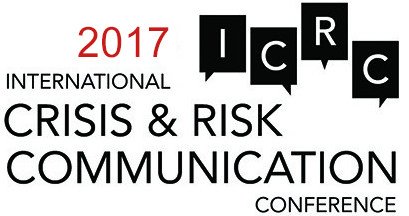
Professor
Aarhus University, Business and Social Sciences
Denmark
Winni Johansen is Professor of Corporate Communication at Centre for Corporate Communication at the School of Business and Social Sciences, Aarhus University (Denmark) and Director of the Executive Master’s Program in Corporate Communication. Dr. Johansen’s research interests include crisis management and crisis communication, change communication, environmental communication, public relations, corporate communication, and organizational culture. Her research has appeared in journals and handbooks such as Corporate Communication: An International Journal, International Journal of Strategic Communication, Management Communication Quarterly, Public Relations Inquiry, Public Relations Review, Rhetorica Scandinavica, The Handbook of Crisis Communication (2010) and The Routledge Handbook of International Crisis Communication Research (2014).
2014
Breakout Session: When Middle Managers Speculate About the Behavior of Employees in Crisis Situations – A Study of the Human Factor in Organizational Crisis Management *
At the end, all organizational crises can be boiled down to a ‘human factor’ whether the members of the organization in crisis and/or their stakeholders are considered as the initiators of the crisis, as the victims of the crisis, or are viewed as those people who are in charge of handling the crisis (Lewis, 2006). Personal and organizational aspects of the human factor such as educational background and organizational function influence how managers and employees perceive, handle, and learn from crisis events.
In 2011, a group of researchers at the Center for Corporate Communication, Aarhus University, conducted a large survey on the internal dimension of crisis management and crisis communication in private and public organizations in Denmark (for an overview of the ICMCC, see Johansen, Aggerholm and Frandsen, 2012). An electronic questionnaire, including 34 questions divided into five sections, was distributed among middle managers responsible for the crisis management and crisis communications function in their organizations. In total 237 respondents (166 out of 367 respondents from private companies (45%), and 71 out of the total of 98 Danish municipalities (72%)) answered the survey.
Some of the questions in the questionnaire were open questions. We are in particular interested in two of these questions: Question (15.1): “In which way does the organizational function and/or the educational background have an impact on how employees behave in a crisis situation?”. Question (16): “Are the causes of a crisis, the crisis event itself, and the consequences perceived differently by the top management, the middle managers, and the employees? If yes, please specify.”
The aim of this paper is to answer the following research questions: How do the respondents of the ICMCC survey expect the employees to typically react during a crisis situation and do they claim that personal and organizational factors such as organizational function and educational background have an impact on the behavior of employees, not only during the crisis event, but also before and after a crisis? And if yes, how do they envision and explain this impact? To answer these questions, a content analysis of the explanatory statements made by the respondents regarding question 15.1 and 16 is conducted. Based on an open coding, all the statements are analyzed, categorized and interpreted in details.
Practical interest of this study: Most organizational crises are complex and multidimensional. Therefore, the understanding and management of such crises are not always based on personal experience, formal training or learning, but also on a good deal of speculation, that is, the forming of ‘theories’ without conclusive evidence. This kind of speculation will create certain expectations among crisis managers concerning the behavior of employees in crisis situations. These expectations will have an influence on how crisis managers handle crisis.
*Finn Frandsen and Winni Johansen co-authored this paper. Finn Frandsen and Winni Johansen will present.
2012
Research Presentation: What Do Organizations Write in Their Crisis Management Plans?


